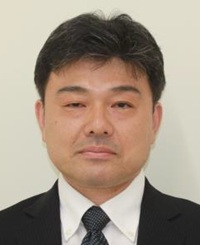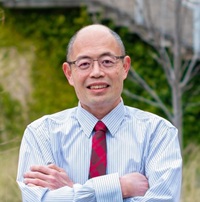ICMIP 2026-KEYNOTE SPEAKERS

Prof. Tatsuya Yamazaki, Niigata University, Japan
Biography: Tatsuya Yamazaki received the B.E., M.E. and Ph.D. degrees in information engineering from Niigata University, Niigata, Japan, in 1987, 1989 and 2002, respectively.He joined Communications Research Laboratory (at present, National Institute of Information and Communications Technology) as a researcher in 1989. Since August 2013, he has been with the Faculty of Engineering, Niigata University, Niigata, where he is currently a Professor. Currently, he is alsothe director at the Big Data Activation Research Center of Niigata University. From 1992 to 1993 and 1995 to 1996 he was a visiting researcher at the National Optics Institute, Canada.From 1997 to 2001 he was a senior researcher at ATR Adaptive Communications Research Laboratories. His research interests include pattern recognition, statistical image processing, sensing data analysis, and communication service quality management. He served as general co-chair of IEEE Workshop on Knowledge Media Networking (KMN'02) and general chair of the 5th International Conference On SmartHomes and Health Telematics (ICOST 2007). He is a member of the IEEE, the Institute of Electronics, Information and Communication Engineers, the Information Processing Society of Japan, the Institute of Image Information and Television Engineers, and the Japanese Society for Artificial Intelligence.

Prof. Chin-Tser Huang, University of South Carolina, USA
Tentative Speech Title: Cryptographic Shuffling for Enhancing Relational Database Security
Dr. Chin-Tser Huang is a Professor in the Department of Computer Science and Engineering at the University of South Carolina at Columbia. He received the B.S. degree in Computer Science and Information Engineering from National Taiwan University, Taipei, Taiwan, in 1993, and the M.S. and Ph.D. degrees in Computer Sciences from The University of Texas at Austin in 1998 and 2003, respectively. His research interests include network security, network protocol design and verification, and distributed systems. He is the director of the Secure Protocol Implementation and Development (SPID) Laboratory at the University of South Carolina. He is the author (along with Mohamed Gouda) of the book “Hop Integrity in the Internet,” published by Springer in 2005. His research has been funded by DARPA, AFOSR, AFRL, NSF, NEH, and USDOT. He is an NRC Research Associate in 2020, and a recipient of the USAF Summer Faculty Fellowship Award and of the AFRL Visiting Faculty Research Program Award in 2008-2024. He is a Senior Member of IEEE and ACM.
